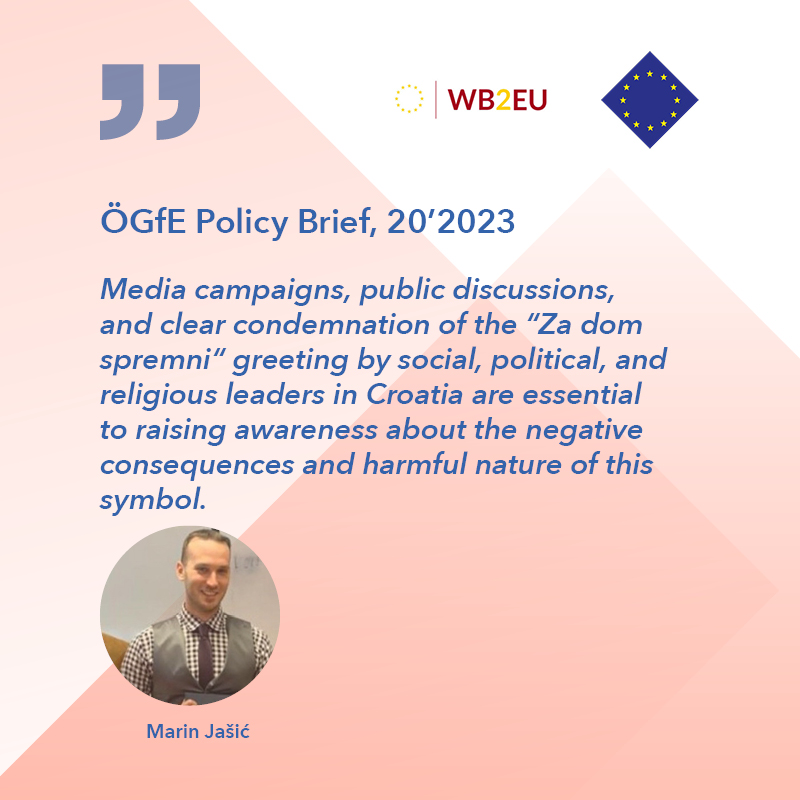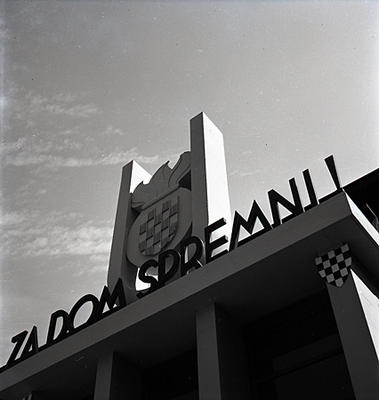Balancing Freedom of Expression and Democracy: The Case of the “Za Dom Spremni” Greeting in Croatia, Marin Jašić, ÖGfE Policy Brief, 20’2023
This Policy Brief explores the contentious issue of the „Za dom spremni“ greeting in Croatia, examining its historical significance, legal framework, and diverse perspectives. It highlights debates among historians, political organisations, and minority communities, shedding light on the complexities of balancing free expression and democratic values in confronting the country’s past.
Policy Recommendations
- Media campaigns, public discussions, and clear condemnation of the „Za dom spremni“ by social, political, and religious leaders are essential to raising awareness about the negative consequences and harmful nature of this symbol.
- By developing a culture of memory and highlighting historical facts, educational institutions must provide the younger generation with a better understanding of how totalitarian regimes were operated as well as the dangers of emphasising their characteristics in public space.
- Cooperation between authorities, civil society, historians, human rights experts, and representatives of minority communities should be enhanced to jointly confront the past, promote democratic values, and prevent the rehabilitation of extremist ideologies.
As a member state of the European Union, the North Atlantic Treaty Organization, and the Council of Europe, Croatia should unequivocally sanction any kind of symbol of the totalitarian regimes without any political or legal hesitation, because symbols or greetings reviving past anti-democratic ideologies contradict the goals and values of the mentioned organisations.
Marin Jašić Tweet

Photo: Entrance to „Zagrebački zbor“ in 1942, it served as a transit camp for shipping Jews to Ustaša extermination camps.
© Anonimus, Public domain, via Wikipedia


